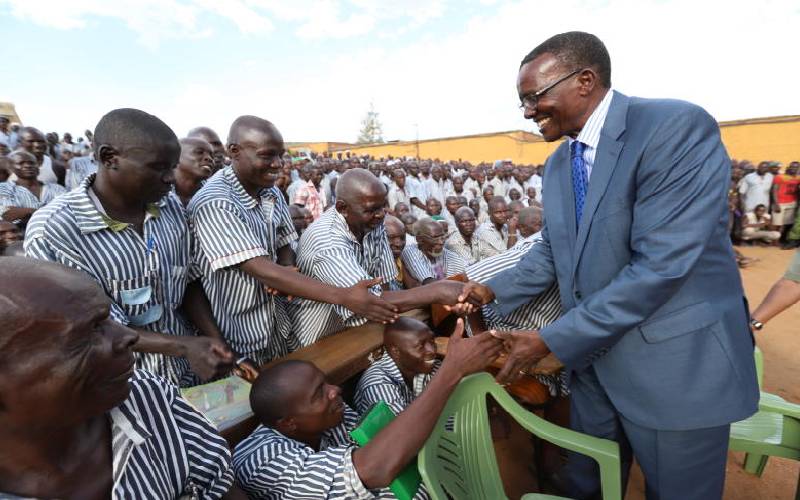×
The Standard e-Paper
Smart Minds Choose Us

Chief Justice David Maraga greets inmates at Kisumu Maximum prison, Kodiaga. [File, Standard]
A task-force formed to review criminal laws recommended that convicts be released from prison early if they are deemed to have reformed.